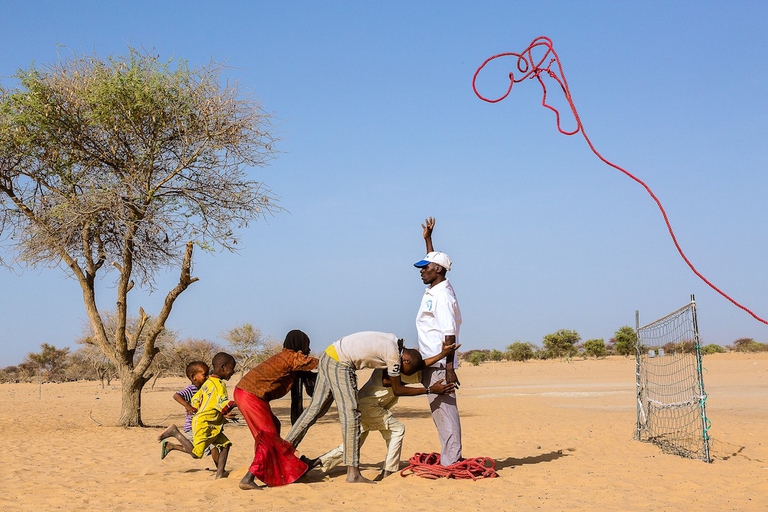
As per tradition after 12 years India held Mahakumbh, the world’s largest spiritual congregation that has been attracting pilgrims from across the globe.
4 in 2014, 44 last year alone. The number of children used as suicide bombers by terrorist group Boko Haram – operating in Nigeria, Cameroon, Chad, and Niger – is dramatically increasing. The warning has been issued by a report of UNICEF, published 2 years from 14 April 2014, when 276 schoolgirls were abducted by terrorists
4 in 2014, 44 last year alone. The number of children used as suicide bombers by terrorist group Boko Haram – operating in Nigeria, Cameroon, Chad, and Niger – is dramatically increasing. The warning has been issued by a report of UNICEF, published 2 years from 14 April 2014, when 276 schoolgirls were abducted by terrorists in North-East Nigeria.
Children are part of terrorists’ arsenal. They were already victims of abductions, sexual abuse, forced marriages, and now they’ve been turned into bombs to be thrown against the Islamic State’s enemies. “Let us be clear: these children are victims, not perpetrators,” said Manuel Fontaine, UNICEF’s regional director for West and Central Africa.
Over the past few months, the terrorist group has been defeated more than once: nearly all Nigerian areas previously conquered have been freed. For this reason, terrorists decided to react, by multiplying suicide bombings. They hit mosques, crowded markets and restaurants, and they played on the fact that kids rarely raise suspicion. “Deceiving children and forcing them to carry out deadly acts has been one of the most horrific aspects of the violence in Nigeria and in neighbouring countries,” Fontaine added.
In the report, UNICEF tells the origin of child suicide bombers: some of them were abducted, while others lost their parents during the attacks at their villages thus remaining alone, becoming easy prey for Boko Haram’s fighters. The conflict forced 1.3 million minors to flee their homes so far, out of a total of 2.3 million refugees.
Figures released by the UN are even more dreadful: insecurity and attacks have kept more than 670,000 children out of the classrooms for more than a year, while over 1,800 schools have been closed or damaged. In the conflict areas, estimated number of children with severe acute malnutrition increased from 149,000 to 195,000 between January 2014 and January 2016. Not to mention that the Islamic group already killed 20,000 people. Thus, UNICEF made a plea: this year, to help children and their families 97 million dollars will be needed. The organisation only have 11 million at the moment.
Siamo anche su WhatsApp. Segui il canale ufficiale LifeGate per restare aggiornata, aggiornato sulle ultime notizie e sulle nostre attività.
![]()
Quest'opera è distribuita con Licenza Creative Commons Attribuzione - Non commerciale - Non opere derivate 4.0 Internazionale.
As per tradition after 12 years India held Mahakumbh, the world’s largest spiritual congregation that has been attracting pilgrims from across the globe.
Workers in tea gardens of West Bengal, India, that produces Ctc tea for domestic consumption complain that they have been devoid of basic facilities while political parties make hollow promises during every elections which are never fulfilled.
India is in the middle of the elections, but sadly none of the politicians have uttered a word on man-animal conflict that has been devouring several lives every year.
Manipur, a state in north-east India, is still reeling under the tremors of violence that broke out last year devouring lives and paralyzing the economy.
The government of Tanzania is currently planning to evict more than 80.000 indigenous Maasai people from their ancenstral land
A new UNU-INWEH report on the global bottled water industry reveals the massive scale of this market and the lack of strict quality controls.
Isatou Ceesay founded a social enterprise that is helping to fight plastic pollution and empowering women and young people to gain economic independence.
In 2020, Mihela Hladin made a radical decision that many, in recent times, have probably considered. This is her story, with photos by Matt Audiffret.
The Brazilian government has started evicting illegal gold miners, responsible for the health emergency that has hit the Yanomami people.








